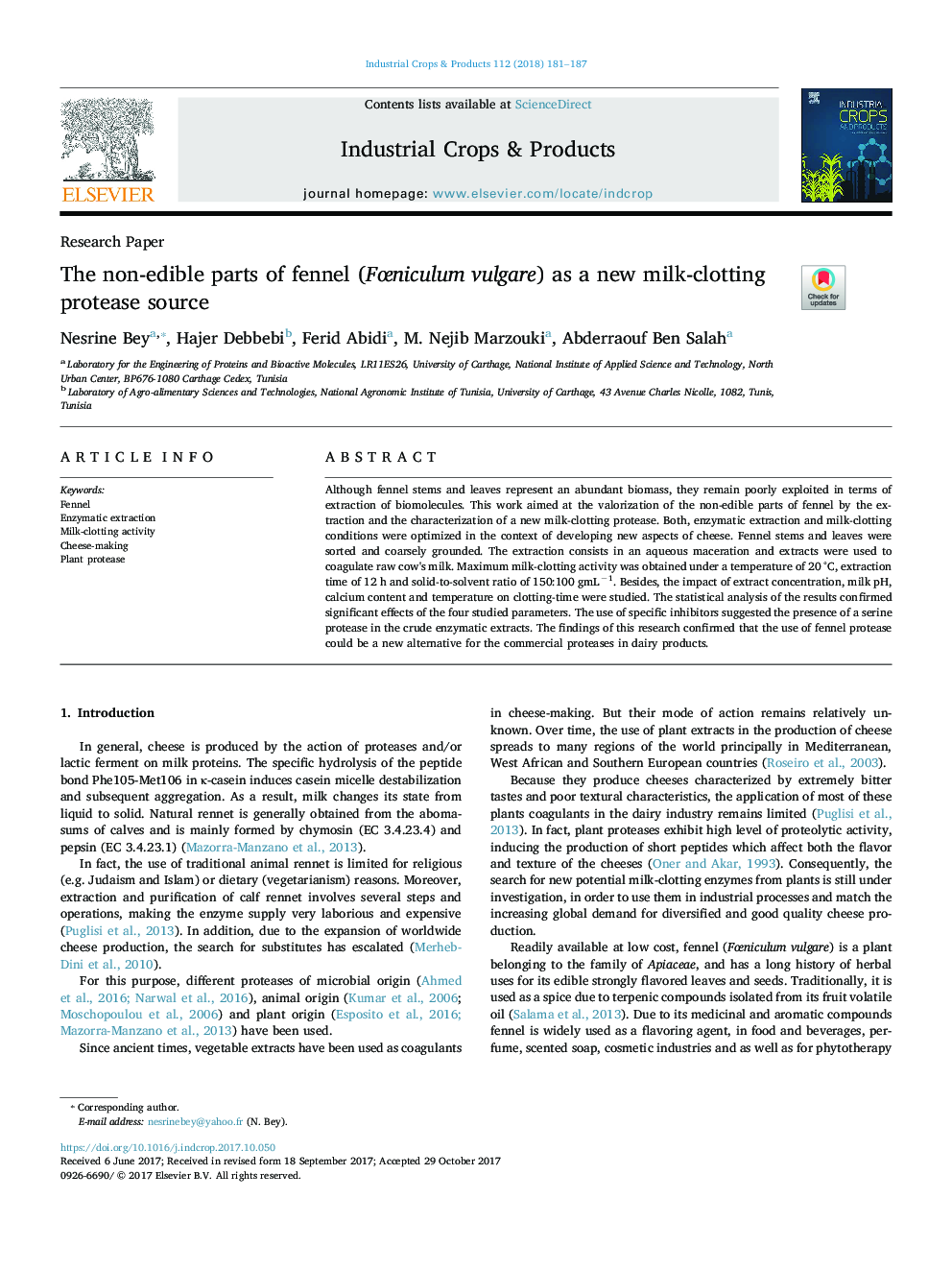| Article ID | Journal | Published Year | Pages | File Type |
|---|---|---|---|---|
| 8880597 | Industrial Crops and Products | 2018 | 7 Pages |
Abstract
Although fennel stems and leaves represent an abundant biomass, they remain poorly exploited in terms of extraction of biomolecules. This work aimed at the valorization of the non-edible parts of fennel by the extraction and the characterization of a new milk-clotting protease. Both, enzymatic extraction and milk-clotting conditions were optimized in the context of developing new aspects of cheese. Fennel stems and leaves were sorted and coarsely grounded. The extraction consists in an aqueous maceration and extracts were used to coagulate raw cow's milk. Maximum milk-clotting activity was obtained under a temperature of 20 °C, extraction time of 12 h and solid-to-solvent ratio of 150:100 gmLâ1. Besides, the impact of extract concentration, milk pH, calcium content and temperature on clotting-time were studied. The statistical analysis of the results confirmed significant effects of the four studied parameters. The use of specific inhibitors suggested the presence of a serine protease in the crude enzymatic extracts. The findings of this research confirmed that the use of fennel protease could be a new alternative for the commercial proteases in dairy products.
Related Topics
Life Sciences
Agricultural and Biological Sciences
Agronomy and Crop Science
Authors
Nesrine Bey, Hajer Debbebi, Ferid Abidi, M. Nejib Marzouki, Abderraouf Ben Salah,
